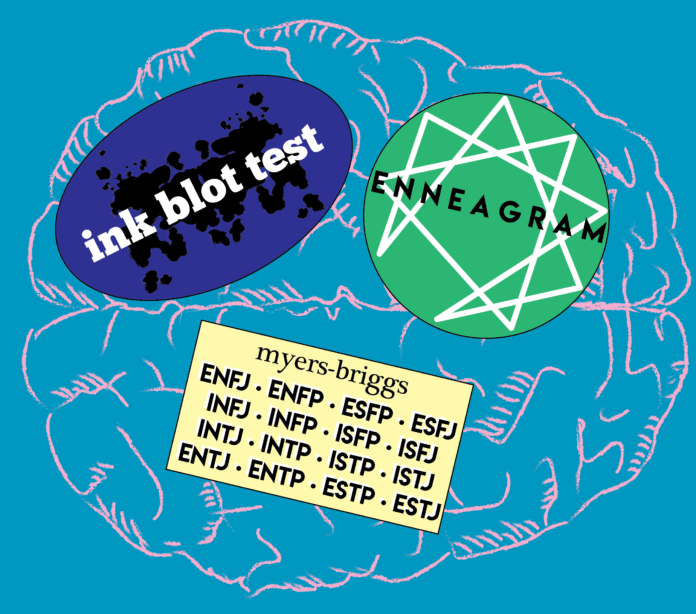By Thomas Moran | Staff Writer
Personality tests are all the rage in modern media. Popular sites like Buzzfeed offer countless quizzes and tests for entertainment purposes, while more scientifically based tests like the Enneagram and Myers-Briggs Type Indicator attempt to offer insights into the inner workings of individuals. With such a broad variety of options, are such tests credible? And if they are, how should participants utilize the results?
Baylor department of psychology and neuroscience associate professor Dr. Alex Beaujean specializes in psychological assessment and measurement and quantitative methods and in his opinion, not all personality tests are created equal.
“They can be credible and can be useful, but not all personality tests that are available are either credible or useful,” Beaujean said.
There are a few instances in which personality tests are beneficial, Beajuean said. The first is in administrative situations. In his view, specific jobs are tailored to specific personality types and having that information can be helpful during the hiring process.
“For example, say I need to hire a party planner and I have 100 people apply for the position,” Beaujean said. “I would probably want to focus on the applications from people who are more extroverted than introverted, people who get energized by being part of social interactions.”
The second context in which personality tests can be useful is in a clinical environment, though they may look different from tests easily found on the internet Beajuean said.
“These types of tests tend to do well in identifying people who are having some major difficulties in their life, such as having a lot of anxious thoughts,” Beaujean said. “These types of personality tests have to be interpreted and used by licensed psychologists and are used as part of a larger psychological assessment.”
Beaujean said many personality tests have little scientific backing which, in the academic world, deem them nearly worthless.
“Ideas of personality that are not grounded in science,” Beaujean said. “For example, the enneagram personality system is very popular — especially in religious colleges and institutions … There is little peer-reviewed evidence available to support the system … Consequently, making decisions about individuals based on their enneagram number/type, at best, is probably a waste of time.”
Beyond being non-academic, some personality tests and interpretation of their results can be harmful Beaujean said.
“At worst, it could cause some major harm such as interpreting people’s types as the areas where they ‘need to come to Christ and seek transformation,’ which was touted in a recent article about enneagrams in Christianity Today,” Beaujean said.
Houston sophomore Kathryn Sadler enjoys personality tests in a casual way and avoids giving any personality test too much say in her day-to-day life.
“I think personality tests should not define your personality,” Sadler said. “They should inform you on maybe why you make decisions or maybe why you think the way you do. But you should never let your personality test stop you from growing as a human being.”
Sadler attributes the popularity of personality tests to the way they allow us to better understand ourselves and how we connect with others.
Ultimately, Beaujean said there are still many unknowns in the study of personalities and results, particularly non-clinical results, should be taken lightly and interpreted with a grain of salt.
“Although personality tests have been around for a long time, there is still a lot to be done to understand how to measure personality,” Beaujean said.






